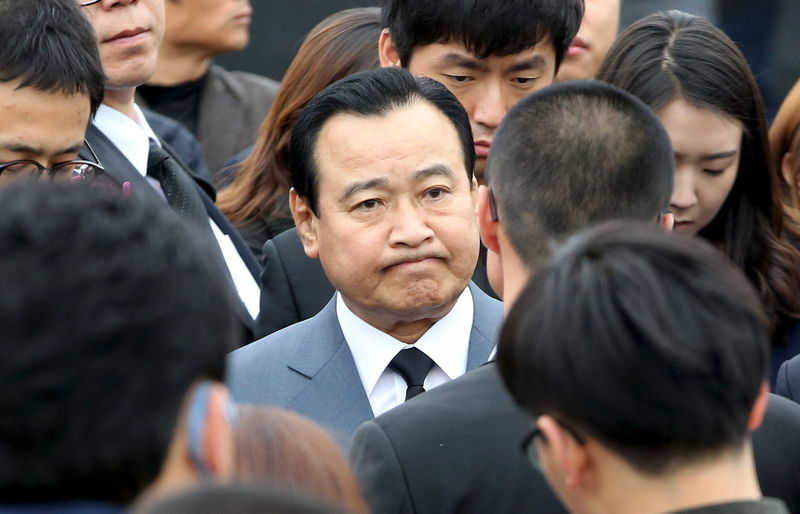SEOUL (Reuters) - South Korea's prime minister, who has denied an allegation that he took illegal funds from a businessman who committed suicide, has offered to resign, Yonhap news agency said on Tuesday.
In a scandal that threatens to weaken President Park Geun-hye, Prime Minister Lee Wan-koo has denied he received 30 million won (18,114 pounds) in campaign funds from businessman Sung Wan-jong. Sung was found earlier this month hanging by his necktie from a tree while under investigation for fraud and bribery.
Park is in the third year of a single five-year term and her Saenuri Party faces a parliamentary general election next year for control of the 300-seat assembly.
"We have confirmed that Prime Minister Lee has conveyed his will to resign," Yonhap quoted a presidential Blue House official who is travelling with Park in Peru as saying.
Park is on a four-country trip to South and Central America and returns on April 27. An official at the presidential Blue House in Seoul could not confirm the resignation report. Calls to the prime minister's office were not answered.
The post of the prime minister is largely ceremonial as the official head of the cabinet which is appointed by the president and administers policy set by the government and approved by parliament.
Park said last week nobody should be exempt from scrutiny for corruption or wrongdoing and indicated she would dismiss anyone who is found to be guilty over such charges.
Hours before he was found dead on a mountainside in northern Seoul, Sung said in an interview with a local newspaper that he had given political funds to Park's close aides and to prominent Saenuri Party members.
Prime Minister Lee was alleged to have received 30 million won from Sung in 2013 when he was seeking re-election for parliament.
Prosecutors found a note on Sung's body making similar accusations, which they said was in Sung's handwriting.
Under a campaign finance law passed in 2004, as what became the Saenuri Party was battling an earlier bribery scandal, political contributions in excess of 100,000 won were made illegal.

Corporations are banned from making political donations under the law, which is aimed at severing ties between the government and businesses looking to secure favours.